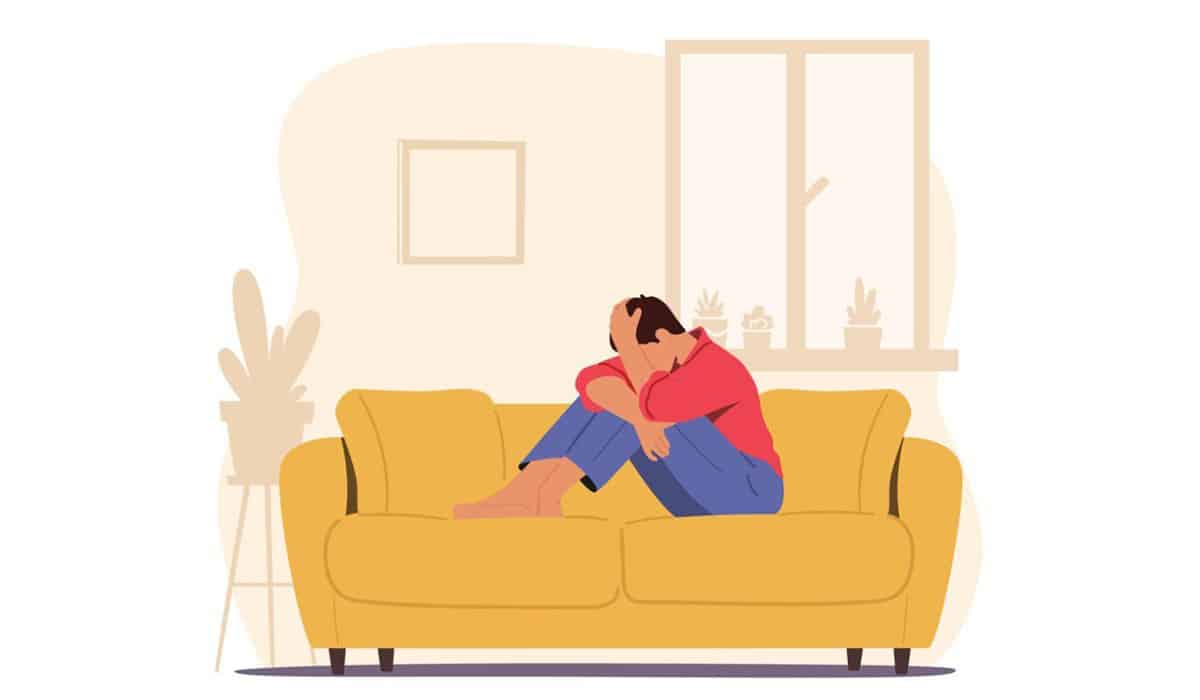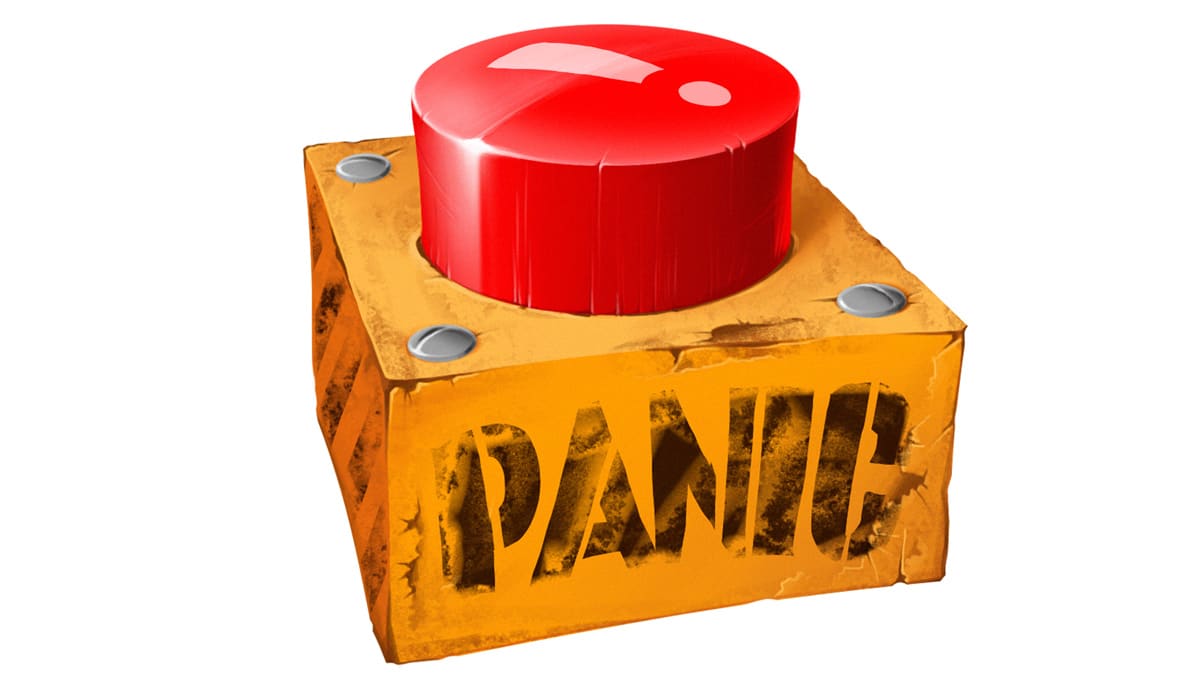
“Food X Linked to Colon Cancer, Research Says.”
“New Study: Food Y as Dangerous as Cigarettes”
“Double Risk of Obesity for Fried-Food Lovers”
You’ve seen headlines like these. They’re basically appeals to fear. Sometimes it’s negative motivation: “if you eat this food, horrible things will happen to you.” Or sometimes it’s positive motivation: “eat this food to prevent horrible things from happening to you.” Either way, the message is based on fear.
These headlines try to scare people into healthy behaviors. The underlying idea is that the fear can make us healthy. We just need to translate our fear of cancer into fear of bacon or fried foods or cigarettes or sugar (or whatever else is supposed to cause cancer this week). Then the fear will motivate us to avoid the “bad” foods and eat the “good” ones and we’ll be safe from cancer…right?
Not really. This isn't a great way to make people healthier. For one thing, living in constant fear of “bad” foods is stressful and overwhelming. For another thing, fear-based information doesn’t actually give people the tools they need to make rational decisions. Name-dropping scary diseases like cancer doesn’t prove that a study has any actual practical relevance to actual humans in the real world (maybe it was done in mice, or in test tubes: how do you know it even applies to you if all you see is SUGAR = CANCER?). And even if there is a serious, significant problem, being scared doesn’t help you make smart decisions about addressing it.
It’s normal to be afraid of cancer and diabetes and all kinds of other horrible diseases. But it’s not healthy to let that fear short-circuit your ability to make decisions, especially not when nutrition science is changing so fast.
Living in Fear is Overwhelming and Stressful.
If you read enough scare headlines, it can start to feel like the world is full of terrifying, deadly things: sugar, food dye, BPA, air pollution, fast food, phthalates, dioxins, gut irritants... You can only avoid them by making all the right decisions – but the recommendations keep changing every week. Maybe this week, we’re all supposed to be scared of coffee, but next week coffee is good and fish oil is dangerous. The week after that, fish oil is OK again but fried foods cause cancer.
The reality is that single studies often have conflicting results, and one study rarely “proves” anything. To “prove” a relationship you’d need to look at the context – go find reviews that compare many different studies and see what they say. But most people don’t do that; they just bounce back and forth from one study to the next, getting more and more overwhelmed (or giving up completely and declaring that “everything gives you cancer so I’m just going to eat pizza and be happy.”)

How is it helpful to live like that? It’s just constant, chronic stress and you can never get it “right” and feel safe. Ironically, considering the health effects of chronic stress, it might be better for your health to turn the headlines off, completely ignore the question
of which foods cause horrible diseases, and do some meditation instead.
But not everyone is constantly flip-flopping back and forth between different fears! Some people are consistently afraid of the same things for years at a time, and actually make long-term behavior changes based on their fear, and then they don’t feel overwhelmed or stressed because they’re taking action in response to their fear. So that kind of fear-based decision is good, right?
Not necessarily. Not even if you could somehow be sure that this time, the relationship between sugar and cancer (or whatever) is really, actually, true. Taking action on fear is only helpful if the fear is practically relevant to your actual life, and if the “solution” to the fear actually helps. And that’s not necessarily the case, because…
Decisions Based on Fear Aren’t Rational
Messages based on fear are attention-grabbing and motivating in proportion to how afraid you are. “Food X causes cancer” is more motivating than “Food X causes toenail discoloration.”
That would work fine if people were more afraid of things the more dangerous they are. But that’s not how it works. Fear is irrational. We aren’t afraid of things based on how dangerous they actually are, or how likely they are to affect our lives. Just to take one example, one of the top 10 fears in the US is terrorist attacks. Since September 10, 2001, 3037 people have died in terrorist attacks on US soil (2,992 on 9/11, plus 45 people in other attacks). In that same time period, over 490,000 people have died in car crashes. It’s objectively irrational to fear terrorists more than cars – but we still do.
If you make health decisions based on reflexive fear, it’s very likely that your priorities will be skewed by irrational fears. That’s just a foible of human brains; we all do it. And it’s a problem because we all have limited time and energy. If you’re spending yours avoiding rare forms of cancer that you’ll probably never get because “cancer” sounds really scary to you, you’re probably not taking action against less-scary diseases that might actually affect your life.
"Scary" is not a synonym for "Relevant."
And even if you’re afraid of the “right” things, judging headlines based on fear make it almost impossible to tell which study findings are actually relevant to your life. Something “linked to” lung cancer sounds scarier than something “linked to” foot odor. But how likely is that “link” to actually be significant?
That lung cancer study might not show a link that has any practical significance – maybe Food X increases your risk of getting lung cancer by 0.001%. Or maybe it’s linked to lung cancer…in rats, or in experiments done on lung cells in a test tube. Who knows if that’s even applicable to humans? Just seeing “cancer” in the headline doesn’t tell you whether or not the study is actually relevant to real-world health.
Name-dropping scary diseases doesn’t mean that a study has any practical relevance to your life. Making knee-jerk decisions based on how scary a headline sounds isn’t the way to make decisions that actually improve your life.
Fear Doesn’t Provide Helpful Solutions.
Even if you’re afraid of the “right” things for the “right” reasons, fear won’t necessarily lead you towards the best solution. Fear sucks our precious time and energy towards solutions that alleviate fear, not necessarily solutions that fix the problem.
Here’s one example: thousands of people spend huge amounts of time, money, and energy on “detox” diets and products because they’re afraid of “toxins” like BPA, dioxins, and air pollution. It’s reasonable to be concerned about all these things, and it’s reasonable to want to avoid them. But all that motivation is being wasted because detox products are mostly useless. They’re tempting because they feel like a solution and they take away that horrible feeling of fear and powerlessness. But they don’t actually work.
“So We Just Shouldn’t Care About Cancer and Diabetes? Really?”
Nope, that’s not the point at all. The point is that fear shouldn’t dominate your life or your decisions. You are more than your fear. Each new study shouldn’t push you around like a bully on the playground. You can eat a basically good diet without being bullied by every new study showing that X food causes Y disease – especially since single studies are misleading so often.
Most people are afraid of disease. That’s normal and human. Some foods and behaviors really are linked to disease, and sometimes it really is reasonable to avoid those foods or behaviors. The point is to get some distance from your fear, so you can look critically at arguments and headlines that try to exploit it. If you can ask questions like “is this study really relevant to my life?” before you believe it, you’re doing it right.
How to Stop Living in Fear
Here are some practical strategies for taking a step back and making space to get some perspective on your fear:
- Educate yourself: learn how to read studies critically, so you can identify when the study is actually applicable to your life. When a headline tries to make you afraid, ask “Really?” before you let yourself worry. Maybe you'll be right to act on what you read. But maybe you won't.
- Disengage: if you don’t have time to read the studies and analyze the stories, just don’t read fearmongering headlines. Even if you do have time to read the studies, it can be very pleasant to just stop reading headlines for a while. Half of them are going to end up being irrelevant or totally contradicted by next week anyway.
- Focus on eating for non-fear reasons: take time to appreciate the taste and texture of your food. Value it for something more than the cancers it supposedly prevents.
- Pay attention to your own body’s feedback about food. Try acting on that instead of a constant stream of headlines.
Fear doesn’t make us healthy, and eating well isn’t about being afraid of everything. Yes, there are legitimate reasons to avoid some foods and eat others, but making knee-jerk decisions based on fear is rarely helpful - fear of food shouldn't dominate your diet or your life.





Leave a Reply